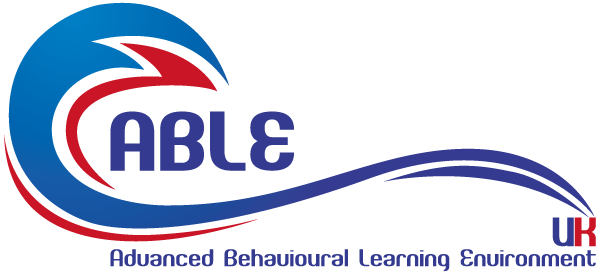Understanding ABA Therapy: A Comprehensive Guide for Parents

Understanding ABA Therapy: A Comprehensive Guide for Parents
Imagine your child as a budding explorer, venturing into the world with boundless curiosity. Sometimes, navigating this world can be tricky. They might struggle to communicate their needs, have difficulty focusing on tasks, or exhibit repetitive behaviours. If you have researched developmental or behavioural therapy for children, chances are you might have come up with ABA therapy and you might be wondering if it is a good fit for your child.
The term might seem overwhelming, and this is why we have put together this guide together to educate you on everything you need to know about ABA therapy, its benefits, and how it can make a significant difference in your child’s life.
Here in Dubai, with its diverse and vibrant community, many families are exploring different avenues to support their children’s development. ABA therapy has emerged as a valuable tool for countless parents seeking to help their little explorers navigate the world with confidence. But what exactly is ABA therapy, and how can it benefit your child?
What is ABA Therapy?
Applied Behaviour Analysis (ABA) is a scientific approach to understanding behaviour and how it is affected by the environment. In simpler terms, it’s a way to teach and reinforce positive behaviours while reducing harmful or challenging ones. ABA therapy is widely used to help children with autism and other developmental disorders, but its principles can be applied to anyone.
The ABCs of ABA Therapy
The core principle of ABA therapy revolves around the ABC model:
- Antecedent (A): This is the trigger or event that comes before a specific behaviour.
- Behaviour (B): This is the specific action or response your child exhibits.
- Consequence (C): This is the outcome of the behaviour.
By understanding this model, therapists can identify the triggers for challenging behaviours and implement strategies to encourage desired responses.
ABA therapy is based on several key principles:
- Positive Reinforcement: Encouraging desired behaviours by rewarding them.
- Task Analysis: Breaking down complex tasks into smaller, manageable steps.
- Prompting and Fading: Providing guidance to help the child learn new behaviours and gradually reducing this support.
- Generalization: Ensuring that learned behaviours are applied in various settings and situations.
The Benefits of ABA Therapy for Kids in Dubai
With professional care, ABA therapy can benefit your child in a lot of ways. Here are some of the key benefits of ABA therapy;
- Behavioural Improvements: One of the most significant benefits of ABA therapy is its ability to improve behaviour. For children with autism, this can mean fewer tantrums, better communication skills, and the ability to function more independently.
- Skill Development: ABA therapy isn’t just about reducing challenging behaviours; it’s also about building new skills. This can include everything from basic life skills like brushing teeth to more complex social interactions.
- Personalized Approach: Every child is unique, and ABA therapy recognizes this. Programs are tailored to meet the specific needs of each child, taking into account their strengths, weaknesses, and goals. This personalized approach ensures that therapy is both effective and engaging.
How ABA Therapy Works
Assessment and Goal Setting
The first step in ABA therapy is a comprehensive assessment. This helps the therapist understand your child’s current abilities and challenges. Based on this assessment, specific goals are set. These goals are often related to behaviour, communication, social skills, and academic performance.
Implementation
Once the goals are established, the therapist creates a detailed plan to achieve them. This plan includes various techniques and strategies, such as:
- Discrete Trial Training (DTT): A structured method of teaching skills in small, manageable steps.
- Natural Environment Training (NET): Teaching skills in the natural environment to promote generalization.
- Pivotal Response Training (PRT): Focusing on key areas that can trigger widespread improvements.
Data Collection and Analysis
Throughout the therapy, data is collected to track progress. This data is analyzed regularly to make adjustments to the program as needed. This ongoing assessment ensures that the therapy is effective, and that the child is continuously making progress.
Choosing the Right ABA Therapist in Dubai
If you are considering ABA therapy and seeking professional care for your child, here are some recommendations to guide you;
- Qualifications and Experience: When looking for an ABA therapist for your child, it’s essential to consider their qualifications and experience. A certified behaviour analyst (BCBA) with experience working with children with autism is ideal. In Dubai, there are many reputable clinics and therapists specializing in ABA therapy.
- Compatibility and Trust: Equally important is the therapist’s ability to connect with your child. Therapy is most effective when there’s a trusting and positive relationship between the therapist and the child. Don’t hesitate to meet with several therapists to find the right fit.
- Support and Communication: Effective ABA therapy involves collaboration between the therapist, the child, and the parents. Look for a therapist who values open communication and is willing to involve you in the process. This can make a significant difference in the therapy’s success.
Frequently Asked Questions About ABA Therapy
1. What is ABA therapy, and how does it work?
ABA therapy is a scientific approach to understanding and improving behaviour. It involves techniques such as positive reinforcement, task analysis, and generalization to teach new skills and reduce challenging behaviours.
2. How can ABA therapy benefit my child?
ABA therapy can help improve behaviour, develop new skills, and promote independence. It’s particularly effective for children with autism and other developmental disorders.
3. How long does ABA therapy take to show results?
The timeline for seeing results varies depending on the child and the goals set. Some children may show improvement within a few weeks, while others may take several months. Consistency and regular sessions are key.
4. Can ABA therapy be done at home?
Yes, ABA therapy can be done at home, in school, or in a clinical setting. The flexibility of the therapy allows it to be tailored to the child’s needs and environment.
5. Is ABA therapy only for children with autism?
While ABA therapy is most associated with autism, its principles can be applied to anyone with behavioural challenges or developmental delays.
A Spectrum of Benefits: How ABA Therapy Can Help Your Child Thrive
ABA therapy has been shown to be effective in helping children with a wide range of challenges, including:
- Autism Spectrum Disorder (ASD): ABA therapy is a widely recognized evidence-based intervention for children with ASD. It can help improve social communication skills, reduce challenging behaviours, and promote independent living skills.
- Attention Deficit Hyperactivity Disorder (ADHD): ABA therapy can be used to help children with ADHD develop focus, manage impulsivity, and improve organizational skills.
- Learning Difficulties: Children struggling with learning difficulties can benefit from ABA therapy’s structured approach to learning. It can help them develop skills like memorization, problem-solving, and following instructions.
- Communication Delays: ABA therapy can be a valuable tool for children with communication delays. It can help them develop various communication skills, including verbal and nonverbal communication.
Conclusion
ABA therapy is a powerful tool that can make a significant difference in your child’s life. By understanding its principles and benefits, you can make an informed decision about whether it’s the right choice for your family. Remember, every child is unique, and finding the right therapist and approach can lead to remarkable improvements in behaviour, skills, and overall quality of life.
If you’re considering ABA therapy for your child in Dubai, take the time to research and meet with potential therapists. With the right support, your child can achieve their full potential and thrive.

One Comment
business directories in usa
July 31, 2024 @ 6:28 amExcellent piece! Your thorough summary is much appreciated. I now see the issue from a different angle thanks to your insightful comments. You made your points quite clearly with the examples you included. You have my gratitude for penning this.